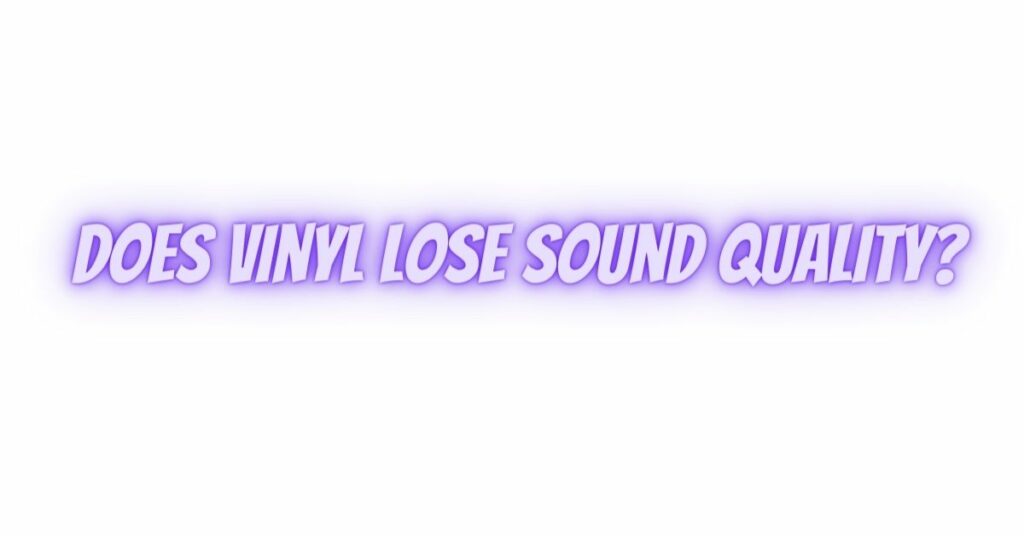Vinyl records, with their analog charm and tactile appeal, have long been celebrated for their high-fidelity sound. However, a common misconception is that vinyl records lose sound quality over time due to wear and degradation. In this comprehensive article, we will explore the factors that affect vinyl record longevity and whether they genuinely result in a loss of sound quality.
The Lifespan of Vinyl Records
Vinyl records are made of polyvinyl chloride (PVC), a durable and robust material. When handled and stored properly, vinyl records have the potential to last for decades without significant deterioration. Several key factors can impact the lifespan and sound quality of vinyl records:
- Storage Conditions: Vinyl records should be stored vertically in a cool, dry place, away from direct sunlight, extreme temperatures, and humidity. Proper storage minimizes the risk of warping and degradation.
- Handling: Fingerprints, dust, and dirt can accumulate on the record’s surface, affecting playback quality. Handling records with clean hands and using an anti-static brush or cleaning solution can mitigate this issue.
- Stylus Condition: The stylus (needle) of the turntable’s cartridge should be clean and properly aligned. A worn or dirty stylus can cause excessive wear on the record grooves and degrade sound quality.
- Turntable Maintenance: Regular maintenance of the turntable, including belt replacement, calibration, and adjustment, ensures that the stylus tracks the grooves accurately, minimizing wear.
- Cleaning: Periodic cleaning of records with a gentle, anti-static cleaning solution can remove contaminants and maintain sound quality.
- Playback Frequency: Frequent playback of a record can lead to stylus wear and groove degradation. It’s advisable to balance your listening enjoyment with the longevity of the record.
- Quality of the Pressing: The quality of the initial pressing and the mastering process significantly affect a record’s longevity and sound quality. Well-pressed, high-quality records are less susceptible to degradation.
Does Vinyl Lose Sound Quality Over Time?
The notion that vinyl records inherently lose sound quality over time is somewhat of a myth. Vinyl records are inherently stable and, when well-maintained, can maintain their original sound quality for many years. The critical factors that can impact sound quality include:
- Stylus Wear: Frequent playback with a worn or dirty stylus can lead to groove damage and a noticeable degradation in sound quality. Regular stylus maintenance is essential.
- Dust and Debris: Accumulated dust and dirt on the record surface can introduce surface noise and compromise sound quality. Proper cleaning techniques can alleviate this issue.
- Scratches and Physical Damage: Deep scratches or physical damage to the record can result in audible pops, clicks, and sound distortion.
- Warping: Warped records can affect tracking and result in varying sound quality as the stylus moves across the grooves.
- Age and Storage Conditions: Long-term exposure to adverse storage conditions, such as extreme temperature fluctuations and humidity, can contribute to record degradation. Proper storage helps mitigate these risks.
Conclusion
Vinyl records, when treated with care and maintained correctly, do not inherently lose sound quality over time. They have the potential to offer high-fidelity sound for decades. Sound quality issues that may arise are typically a result of wear and tear, stylus condition, cleanliness, physical damage, or storage conditions.
The continued appreciation of vinyl records is a testament to their enduring appeal and timeless sound quality. With proper handling, storage, and maintenance, vinyl enthusiasts can enjoy the distinctive analog warmth and immersive listening experience that vinyl records offer without significant degradation in sound quality.


